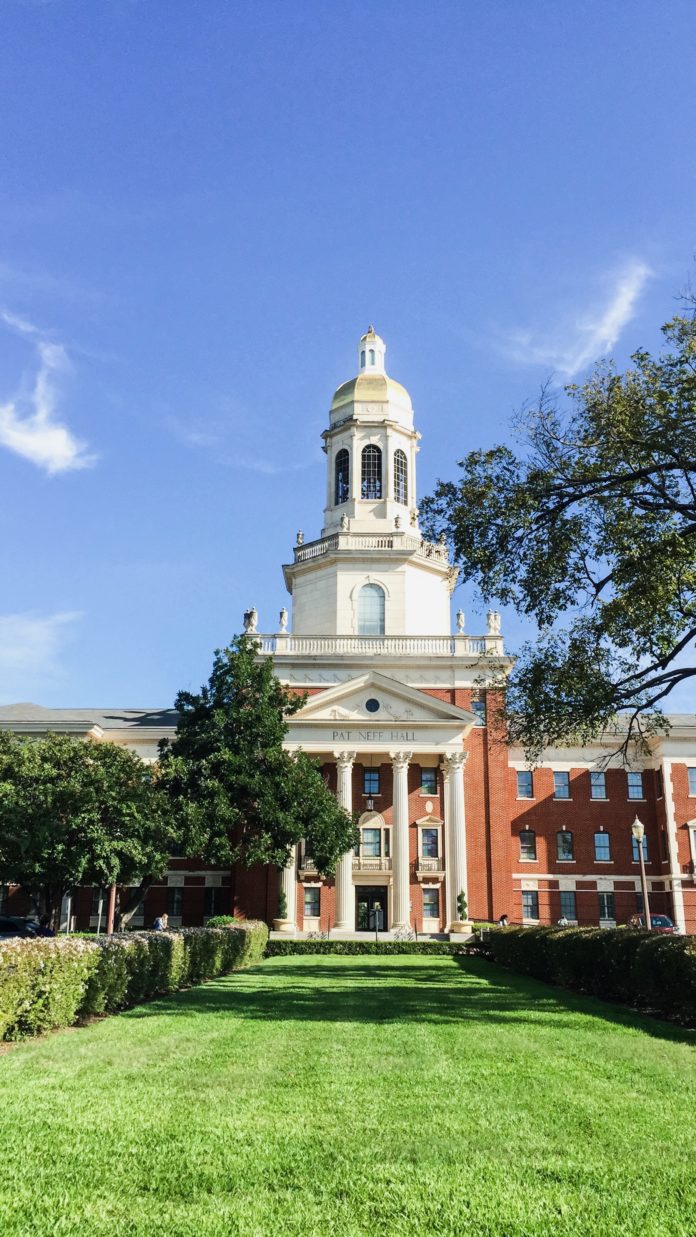By Meredith Pratt | Staff Writer
Baylor University Regents approved a $679.9 million operating budget for 2020-2021 at their meeting Friday, and elected new officers and board members and discussed the guidelines for reopening campus in the fall.
The Board praised Baylor students for their “commitment, resilience and flexibility” and authorized President Livingstone and the University’s administration to “take all necessary actions to ensure a return to a safe and educationally fulfilling on-campus environment” in the fall.
Livingstone outlined five commitments looking forward to the fall semester, including unwavering duty to Christian mission and values, continued effort progressing the Illuminate campaign, ensuring safe on-campus educational experiences, flexible instructional delivery based on social distancing guidelines and preservation of Baylor traditions through creativity.
In order to accomplish these tasks, the President’s council created “Project 8.24” consisting of campus-wide representatives that aim to facilitate a successful start to the semester on Aug. 24.
“While we cannot eliminate all risks, we intend to mitigate these risks in every reasonable way we can,” Livingstone said. “Over the summer, we will work diligently to refine our preparations to create a safe, productive educational environment, but above all, the health and safety of our students, faculty, staff and guests must lead our decision-making regarding all activities. These include adapting our classroom and residential life models and on-campus activities, as needed, while continuing to offer the distinct on-campus college experience for which Baylor is known.”
Anticipated declines in enrollment led to an overall budget decrease of 2.1%, which is $14.2 million less than last year. Livingstone said this decrease will have a “fairly minimal” impact on student’s academic life, however, she acknowledged that some of Baylor’s staff would inevitably be impacted.
Reduction of staffing levels in certain departments, a slower pace of hiring new faculty and reduced retirement contributions are some of the implications of the budget cutbacks. The decisions are set to be reviewed again in two years.
“These are certainly difficult decisions, but necessary for the greater University given this time of significant uncertainty and to fulfill our mission and aspirations of becoming a preeminent Christian research university,” Livingstone said.
New regents were also voted on and approved, as was the Executive Committee for 2020-2021. Mark Rountree was announced as the new Board Chair and Larry P. Heard, Melissa Purdy Mines and Dennis R. Wiles were named as Vice Chairs.
One of the 11 regents ending their term is current Board Chair Jerry K. Clements. Clements described her time leading the board as both an “amazing” and “humbling” experience. President Livingstone commended Clements on being “an unbelievable partner.”
Clements addressed the delay of the highly anticipated Fieldhouse and Hurd Welcome Center projects, stating that the designs were continuing to be refined. She said the regents want to be “good stewards of Baylor’s resources” during this time.
Livingstone said that the Tidwell Bible Building renovation is continuing to progress, with faculty offices being relocated over the summer.
Additionally, the Board voted to create Ph.D. programs in school psychology and communication sciences and disorders, as well as a dual-track master of arts degree in school leadership. The new programs are aimed to fill gaps in the university’s current graduate degree pathways and reflect the university’s goal of reaching Tier 1 research status.
“This is an unprecedented time for all of higher education, and Baylor is not immune to the uncertainty,” Clements said. “The Board remains focused on preserving and strengthening the University’s core academic and Christian mission while ensuring the continued health and safety of our campus community.”






